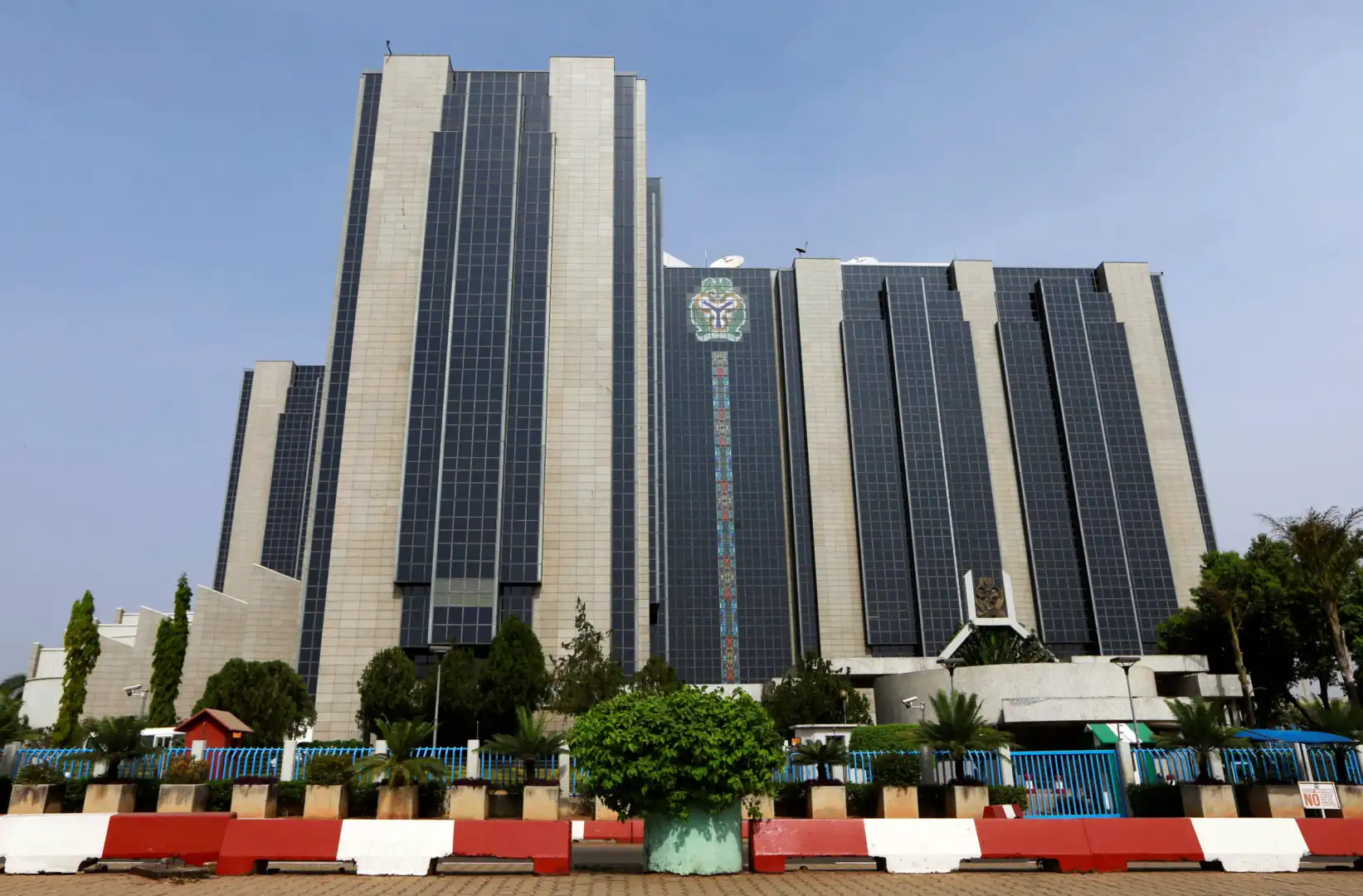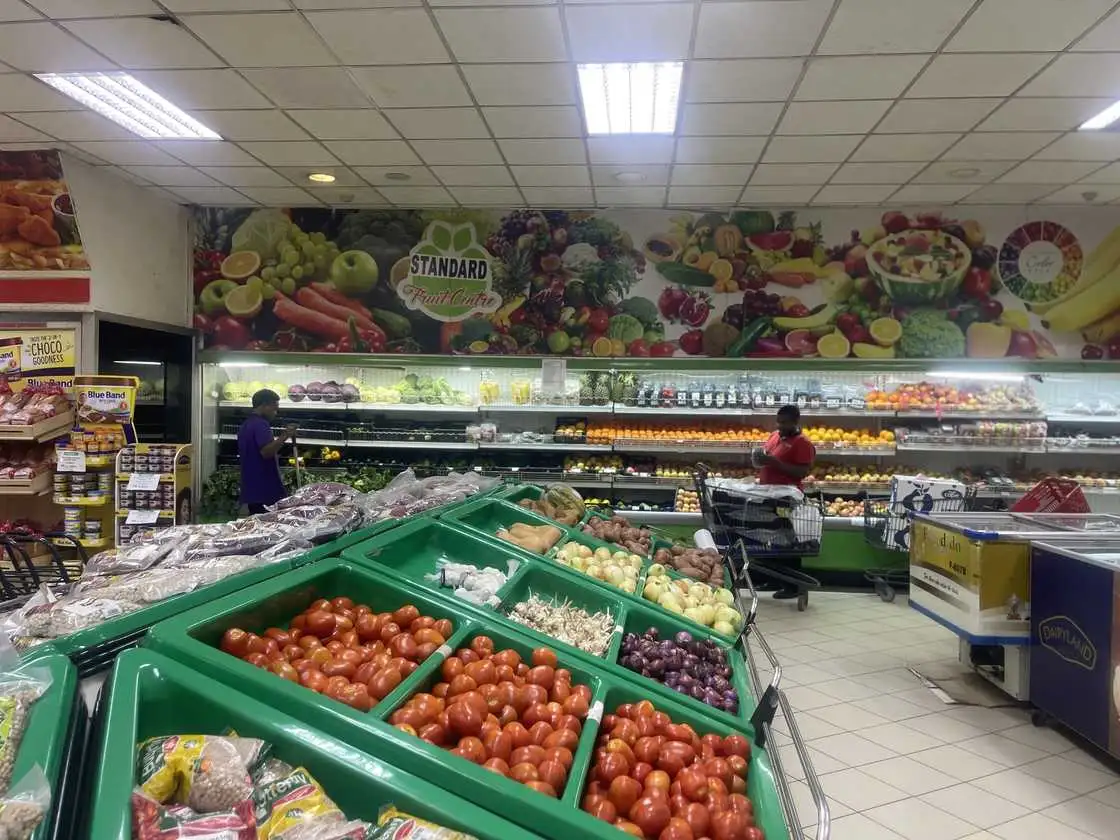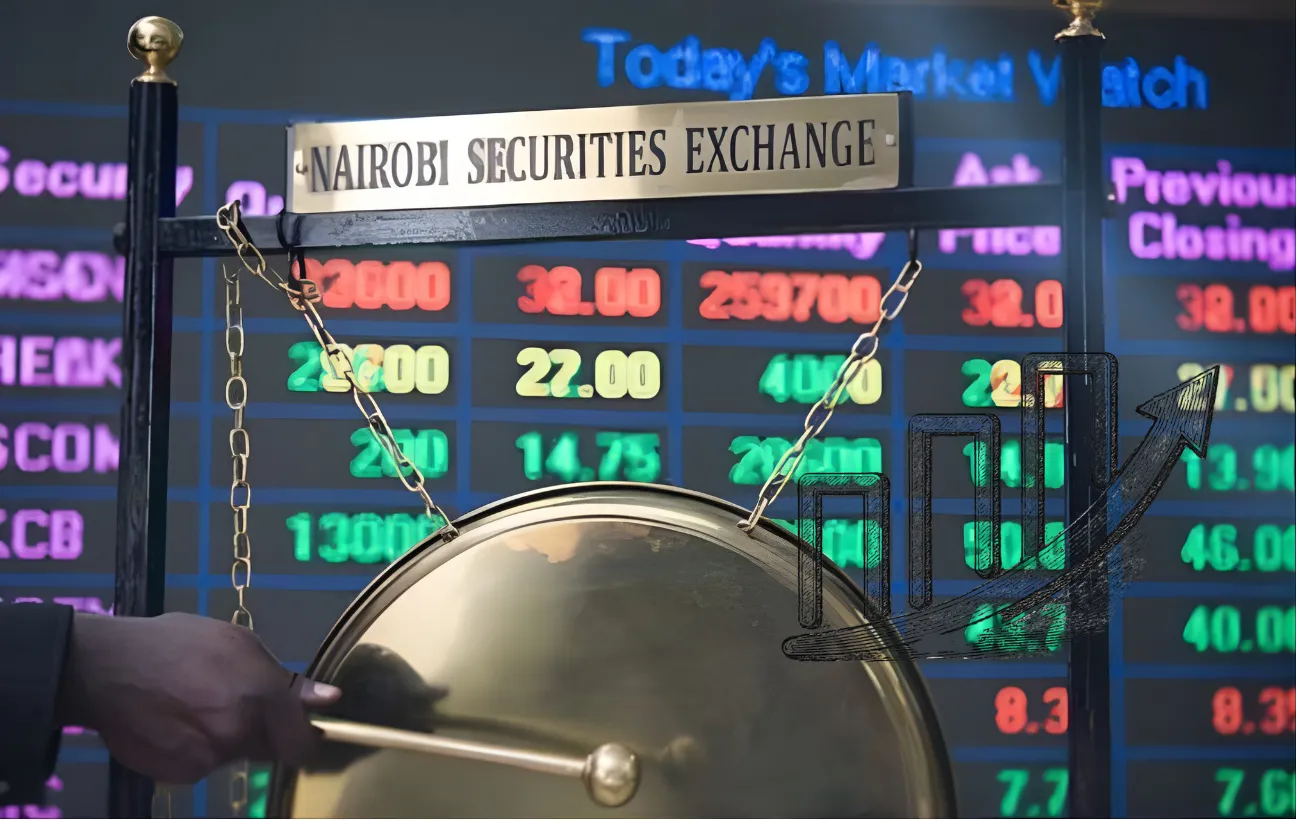Nigeria’s banking sector has emerged as the undisputed champion of renewed investor confidence, capturing a remarkable $3.1 billion—representing 55.44% of total capital importation—in the first quarter of 2025. This unprecedented surge reflects the success of sweeping economic reforms implemented under Central Bank of Nigeria (CBN) Governor Olayemi Cardoso, whose bold interventions since October 2023 have fundamentally altered investor perceptions of Africa’s largest economy.
The latest data from the National Bureau of Statistics reveals that total capital importation surged 67.12% to $5.6 billion in Q1 2025, compared to $3.4 billion in the same period of 2024. This remarkable performance, coupled with Nigeria’s recent GDP rebasing that revealed a $372.8 trillion economy, provides compelling evidence of the country’s economic resilience and potential for sustained growth.
One decision can change your entire career. Take that step with our Online courses in ACCA, HESI A2, ATI TEAS 7, HESI EXIT, NCLEX-RN, NCLEX-PN, and Financial Literacy. Join Serrari Ed and start building your brighter future today.
The Cardoso Revolution: Rebuilding Financial Confidence
Governor Olayemi Cardoso’s tenure has been marked by decisive action to address longstanding structural challenges that had undermined investor confidence for years. When he assumed leadership of the CBN in October 2023, Nigeria faced a daunting backlog of over $7 billion in unmet foreign exchange obligations, creating a crisis of confidence that deterred international investors and stifled economic growth.
The comprehensive reforms implemented by Cardoso included the unification of exchange rates, clearing of forex backlogs, and reduced interventions in the domestic foreign exchange market. These bold decisions, though initially painful, have been widely applauded by international financial institutions, with the World Bank describing them as “bold steps” to improve the sustainability of Nigeria’s economy.
The impact has been transformative. Nigeria’s sovereign risk spread—a key indicator of investor perception—has fallen to its lowest level since January 2020, effectively erasing the risk premiums accumulated during the pandemic years and subsequent economic strain. This dramatic improvement reflects growing international confidence in Nigeria’s policy direction and economic management.
Record-Breaking Banking Sector Performance
The banking sector’s $3.1 billion influx represents the highest inflow in more than ten years, demonstrating a 51% increase from the $2.06 billion recorded in 2024. More remarkably, this figure is more than 27 times what the sector attracted a decade ago, underscoring the extraordinary transformation in investor sentiment.
This surge coincides with the CBN’s ambitious Banking Sector Recapitalisation Programme 2024, which requires financial institutions to meet new minimum capital thresholds based on their license categories. The program, with a compliance deadline of March 31, 2026, aims to position banks to absorb financial shocks, improve intermediation capabilities, and contribute to Nigeria’s goal of achieving a $1 trillion economy by 2030.
According to Proshare reports, Nigerian banks have collectively raised over ₦13 trillion in fresh equity capital as of mid-2025, significantly strengthening their capital buffers and improving resilience to credit risk. Eight banks have already met the recapitalisation targets, demonstrating the sector’s commitment to enhanced financial stability.
Capital Flow Composition and Geographic Distribution
The composition of capital flows reveals important insights into investor preferences and market dynamics. Portfolio investments dominated the inflows, accounting for $5.2 billion or 92.25% of the total, reflecting renewed confidence in Nigeria’s debt and money market instruments. This represents a substantial 150.8% year-on-year increase, driven by attractive yields in a global environment where returns are generally lower.
Money market instruments attracted the largest share at $4.2 billion, while bonds and equities accounted for $877.4 million and $117.3 million respectively. The heavy weighting toward short-term instruments reflects both opportunities and risks, as these flows provide immediate liquidity but remain highly volatile and susceptible to sudden reversals based on global financial market conditions.
Geographically, the United Kingdom emerged as Nigeria’s largest investment source, contributing $3.68 billion or 65.26% of total inflows. This concentration underscores the historical ties between Nigeria and the UK financial markets, while also highlighting the need for greater diversification of funding sources to reduce dependency risks.
Foreign Direct Investment (FDI), representing long-term commitment to productive sectors, remained disappointingly low at just $126.29 million or 2.24% of total inflows. This weakness suggests that while investors are increasingly confident in Nigeria’s financial markets, many remain hesitant to commit long-term resources to productive sectors due to ongoing concerns about infrastructure, security, and business environment challenges.
GDP Rebasing: Revealing Nigeria’s True Economic Size
Parallel to the capital market success, Nigeria has completed a comprehensive GDP rebasing exercise that provides a clearer picture of the economy’s actual size and structure. The National Bureau of Statistics announced that Nigeria’s GDP reached ₦372.82 trillion ($243 billion) in 2024, representing a 35.4% increase from previous estimates based on the old 2010 base year.
The rebasing exercise, which shifted the base year from 2010 to 2019, reflects the United Nations recommendation that countries rebase their economies every five to ten years to capture evolving economic structures and emerging sectors. The 2019 base year was selected for its relative economic stability and the availability of comprehensive survey data, including the Nigeria Living Standard Survey and National Business Sample Census.
According to Statistician-General Adeyemi Adeniran, the rebasing exercise revealed significant structural shifts in Nigeria’s economy. Real estate now ranks as the third-largest sector, displacing crude oil and natural gas to fifth position, primarily due to improved coverage of the informal real estate sector. The top five economic activities now include crop production (17.58%), trade (17.42%), real estate (10.78%), telecommunications (6.78%), and crude petroleum and natural gas (5.85%).
Economic Structure and Sectoral Performance
The rebased GDP data reveals a more diversified economy than previously understood. The services sector remains dominant, contributing 55.5% of GDP in 2024, followed by agriculture at 27.8% and industry at 16.7%. This confirms that services continue driving Nigeria’s economic growth while manufacturing’s share continues to shrink, highlighting ongoing industrialization challenges.
The informal sector’s contribution to GDP was estimated at ₦86.85 trillion or 42.5% in 2019, significantly higher than the previous estimate of ₦39.00 trillion in 2015. This substantial revision reflects improved methodology for capturing informal economic activities, including digital economy operations, e-commerce, fintech, and other online services that were underrepresented in the 2010 base year.
Notably, the rebasing exercise now includes previously overlooked activities such as domestic households as employers of labor, modular refineries, quarrying, pension fund management, and even illicit activities including illegal drug trade, sexual services, and smuggling. This comprehensive approach provides a more accurate representation of Nigeria’s total economic output.
Build the future you deserve. Get started with our top-tier Online courses: ACCA, HESI A2, ATI TEAS 7, HESI EXIT, NCLEX-RN, NCLEX-PN, and Financial Literacy. Let Serrari Ed guide your path to success. Enroll today.
International Market Response and Expert Analysis
International financial markets have responded positively to Nigeria’s reform trajectory. Emre Akcakmak, portfolio manager at East Capital, noted that “Nigeria appears to be back in business as long-awaited economic reforms take shape,” citing improved currency liquidity, enhanced profit repatriation capabilities, and naira stability as key factors driving renewed investor interest.
Samir Gadio, head of Africa strategy at Standard Chartered, explained that “portfolio inflows have likely been supported by improved confidence amid key structural reforms, better FX market functioning and moderating dollar-naira volatility, as well as the still-robust nominal yield buffer.” He emphasized that Nigeria’s local market is perceived as less correlated with global risk conditions compared to more liquid emerging market peers.
Ike Chioke, Managing Director of Afrinvest West Africa Limited, highlighted that portfolio flows rose 150.8% year-on-year to $5.2 billion, reflecting investor attraction to Nigeria’s relatively high yields in a global environment characterized by lower returns. This yield advantage continues to position Nigeria favorably for portfolio investment, though sustainability depends on maintaining macroeconomic stability.
Regional and Continental Context
Despite the impressive GDP rebasing results, Nigeria remains Africa’s fourth-largest economy, behind South Africa ($410.34 billion), Egypt, and Algeria. This ranking, unchanged from pre-rebasing estimates, reflects the challenges facing Nigeria’s economic development relative to continental peers.
However, the rebasing exercise has improved Nigeria’s debt-to-GDP ratio optics, as the larger GDP base makes existing debt levels appear more manageable. This statistical improvement could enhance Nigeria’s credit profile and borrowing capacity, though economists caution that this doesn’t address underlying fiscal challenges or debt service burdens that continue consuming disproportionate shares of government revenue.
The Centre for the Promotion of Private Enterprise (CPPE) projects that Nigeria’s economy could nearly double to $450 billion by end-2025, provided the country maintains macroeconomic stability and avoids major disruptions. This optimistic projection reflects confidence in ongoing reforms while acknowledging the critical importance of sustained policy implementation.
Banking Sector Recapitalisation and Future Outlook
The CBN’s recapitalisation directive represents a strategic initiative to prepare Nigerian banks for their role in supporting a $1 trillion economy by 2030. Governor Cardoso has been explicit about the inadequacy of current capitalisation levels, stating: “Will Nigerian banks have sufficient capital relative to the financial system’s needs in servicing a $1 trillion economy in the near future? In my opinion, the answer is no, unless we take action.”
The recapitalisation program requires banks to meet new minimum capital thresholds ranging from ₦10 billion for regional non-interest banks to significantly higher amounts for international commercial banks. This initiative aims to strengthen bank balance sheets, attract international capital, and expand capacity to finance large-scale infrastructure, agriculture, and manufacturing projects.
Recent analysis shows that the financial sector experienced 30% growth in 2024, fueled by $6 billion in foreign investments. The combination of regulatory reforms, improved capital adequacy, and enhanced market confidence positions Nigerian banks to play a pivotal role in achieving the country’s ambitious economic targets.
Challenges and Risks in the Investment Landscape
Despite the encouraging capital inflow trends, significant challenges remain that could impact the sustainability of this positive momentum. The heavy reliance on portfolio flows—representing 92.25% of total inflows—exposes Nigeria to substantial volatility risks. These short-term investments can reverse rapidly in response to global financial market shifts, potentially creating liquidity challenges and exchange rate pressures.
The disappointingly low FDI component at just 2.24% of total inflows highlights ongoing structural challenges that deter long-term productive investments. Economists like Nelson Adedeji emphasize that genuine economic growth requires improvements in infrastructure, security, agricultural productivity, manufacturing, and ease of doing business. Without addressing these fundamental issues, statistical gains may fail to translate into tangible benefits for ordinary Nigerians.
Bismarck Rewane of Financial Derivatives Company Limited points to persistent structural challenges including power supply inefficiencies and lack of transparency in the oil and gas sector. These issues must be addressed through comprehensive structural reforms to sustain investor confidence and ensure that capital inflows contribute to long-term economic development rather than short-term speculative gains.
Fintech and Digital Economy Integration
The rebasing exercise has revealed the growing importance of Nigeria’s digital economy, which was significantly underrepresented in the previous 2010 base year calculations. The inclusion of e-commerce, fintech, and other online services in the new GDP methodology reflects the sector’s rapid evolution and substantial contribution to economic output.
Nigeria’s fintech sector has demonstrated remarkable resilience and growth, with companies like Moniepoint Inc. achieving unicorn status following a $110 million Series C funding round. This achievement highlights the sector’s role in addressing infrastructure gaps and boosting financial inclusion across Africa’s most populous nation.
The digital transformation of Nigeria’s financial services sector has been accelerated by innovations in mobile banking, digital payments, and alternative lending platforms. These developments have enhanced financial inclusion while creating new channels for capital mobilization and deployment, contributing to the overall attractiveness of Nigeria’s financial sector to international investors.
Regional Economic Implications and Continental Context
Nigeria’s banking sector success has broader implications for West African regional financial integration and development. As the largest economy in the Economic Community of West African States (ECOWAS), Nigeria’s financial sector stability and growth directly impact regional monetary policy coordination and cross-border investment flows.
The substantial capital inflows into Nigeria’s banking sector contrast with challenges facing other African economies, positioning Nigeria as a regional financial hub. This development could attract regional banks and financial institutions seeking to expand their operations in West Africa’s largest market.
However, the concentration of inflows in portfolio investments rather than FDI suggests that Nigeria still faces competitiveness challenges relative to other emerging markets. Countries like Vietnam and other Asian economies continue to attract higher proportions of long-term productive investments, highlighting areas where Nigeria must improve to compete effectively in global capital markets.
Future Policy Imperatives and Strategic Directions
The success of current reforms creates opportunities for deeper structural transformations that could sustain Nigeria’s economic renaissance. The CBN’s focus on banking sector recapitalisation must be complemented by broader reforms addressing infrastructure deficits, regulatory transparency, and business environment improvements.
Energy sector reforms remain critical, as power supply constraints continue limiting manufacturing competitiveness and discouraging long-term investments. The lack of transparency in the oil and gas sector, as highlighted by analysts, requires urgent attention to restore confidence in Nigeria’s resource management and governance frameworks.
Agricultural productivity improvements offer significant opportunities for economic diversification and job creation. The rebasing exercise confirmed agriculture’s substantial 27.8% contribution to GDP, yet the sector remains dominated by smallholder farming with limited value addition and technological integration.
Macroeconomic Stability and Monetary Policy Coordination
The CBN’s monetary policy framework has evolved significantly under Governor Cardoso’s leadership, with greater emphasis on market-based mechanisms and reduced direct intervention in foreign exchange markets. This approach has improved price discovery and enhanced market confidence while reducing distortions that previously undermined economic efficiency.
Exchange rate unification, though initially painful, has eliminated multiple exchange rate regimes that created arbitrage opportunities and discouraged productive investments. The resulting naira stability, while still subject to external pressures, provides a more predictable environment for business planning and investment decisions.
Inflation management remains a critical challenge, with the CBN balancing growth support objectives against price stability imperatives. The success of current policies in attracting capital inflows provides room for continued monetary accommodation while monitoring inflation expectations and external sector pressures.
Long-term Development Goals and Implementation Challenges
Nigeria’s aspiration to achieve a $1 trillion economy by 2030 requires sustained annual growth rates significantly above recent historical performance. The banking sector’s enhanced capitalisation and improved investor confidence provide necessary but insufficient conditions for achieving this ambitious target.
Infrastructure development financing represents a critical bottleneck, with Nigeria’s infrastructure deficit estimated at over $100 billion. The banking sector’s enhanced capacity must be complemented by innovative financing mechanisms, including public-private partnerships and development finance institutions, to mobilize resources for large-scale infrastructure projects.
Human capital development remains essential for sustaining long-term growth and competitiveness. Nigeria’s demographic dividend—with a young, rapidly growing population—presents opportunities for economic transformation if complemented by investments in education, healthcare, and skills development.
Conclusion: Navigating Opportunities and Challenges
Nigeria’s banking sector has demonstrated remarkable resilience and transformation, emerging as a beacon of renewed investor confidence in Africa’s largest economy. The $5.6 billion capital surge in Q1 2025, with the banking sector capturing 55.44% of total inflows, reflects the success of comprehensive reforms while highlighting the potential for sustained economic renaissance.
The GDP rebasing exercise, revealing a ₦372.82 trillion economy, provides important insights into Nigeria’s economic structure and diversification progress. The emergence of real estate, telecommunications, and services as major economic drivers demonstrates Nigeria’s evolution beyond oil dependency, though significant work remains to fully realize this potential.
However, the heavy reliance on volatile portfolio investments and limited FDI inflows underscore ongoing challenges that require continued policy attention. Structural reforms addressing infrastructure deficits, governance transparency, and business environment improvements remain essential for converting short-term financial inflows into long-term productive investments.
The path forward requires sustained implementation of current reforms while addressing persistent bottlenecks in power supply, transportation infrastructure, and regulatory frameworks. Success in these areas could transform Nigeria’s current financial sector renaissance into broader economic transformation that benefits all Nigerians.
The surge in capital inflows and rebased GDP provide grounds for cautious optimism, suggesting Nigeria is on a recovery path. However, the ultimate measure of success will be whether these reforms deliver durable growth that benefits not just investors but the millions of Nigerians still facing daily struggles with poverty, unemployment, and rising living costs.
Ready to take your career to the next level? Join our Online courses: ACCA, HESI A2, ATI TEAS 7 , HESI EXIT , NCLEX – RN and NCLEX – PN, Financial Literacy!🌟 Dive into a world of opportunities and empower yourself for success. Explore more at Serrari Ed and start your exciting journey today! ✨
Track GDP, Inflation and Central Bank rates for top African markets with Serrari’s comparator tool.
See today’s Treasury bonds and Money market funds movement across financial service providers in Kenya, using Serrari’s comparator tools.
photo source: Google
By: Montel Kamau
Serrari Financial Analyst
19th August, 2025
Article, Financial and News Disclaimer
The Value of a Financial Advisor
While this article offers valuable insights, it is essential to recognize that personal finance can be highly complex and unique to each individual. A financial advisor provides professional expertise and personalized guidance to help you make well-informed decisions tailored to your specific circumstances and goals.
Beyond offering knowledge, a financial advisor serves as a trusted partner to help you stay disciplined, avoid common pitfalls, and remain focused on your long-term objectives. Their perspective and experience can complement your own efforts, enhancing your financial well-being and ensuring a more confident approach to managing your finances.
Disclaimer: This article is for informational purposes only and does not constitute financial advice. Readers are encouraged to consult a licensed financial advisor to obtain guidance specific to their financial situation.
Article and News Disclaimer
The information provided on www.serrarigroup.com is for general informational purposes only. While we strive to keep the information up to date and accurate, we make no representations or warranties of any kind, express or implied, about the completeness, accuracy, reliability, suitability, or availability with respect to the website or the information, products, services, or related graphics contained on the website for any purpose. Any reliance you place on such information is therefore strictly at your own risk.
www.serrarigroup.com is not responsible for any errors or omissions, or for the results obtained from the use of this information. All information on the website is provided on an as-is basis, with no guarantee of completeness, accuracy, timeliness, or of the results obtained from the use of this information, and without warranty of any kind, express or implied, including but not limited to warranties of performance, merchantability, and fitness for a particular purpose.
In no event will www.serrarigroup.com be liable to you or anyone else for any decision made or action taken in reliance on the information provided on the website or for any consequential, special, or similar damages, even if advised of the possibility of such damages.
The articles, news, and information presented on www.serrarigroup.com reflect the opinions of the respective authors and contributors and do not necessarily represent the views of the website or its management. Any views or opinions expressed are solely those of the individual authors and do not represent the website's views or opinions as a whole.
The content on www.serrarigroup.com may include links to external websites, which are provided for convenience and informational purposes only. We have no control over the nature, content, and availability of those sites. The inclusion of any links does not necessarily imply a recommendation or endorsement of the views expressed within them.
Every effort is made to keep the website up and running smoothly. However, www.serrarigroup.com takes no responsibility for, and will not be liable for, the website being temporarily unavailable due to technical issues beyond our control.
Please note that laws, regulations, and information can change rapidly, and we advise you to conduct further research and seek professional advice when necessary.
By using www.serrarigroup.com, you agree to this disclaimer and its terms. If you do not agree with this disclaimer, please do not use the website.
www.serrarigroup.com, reserves the right to update, modify, or remove any part of this disclaimer without prior notice. It is your responsibility to review this disclaimer periodically for changes.
Serrari Group 2025
















